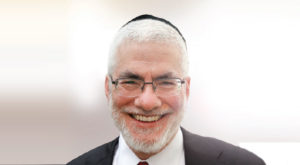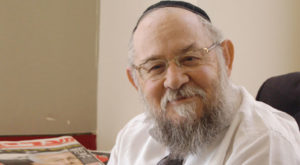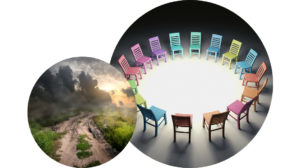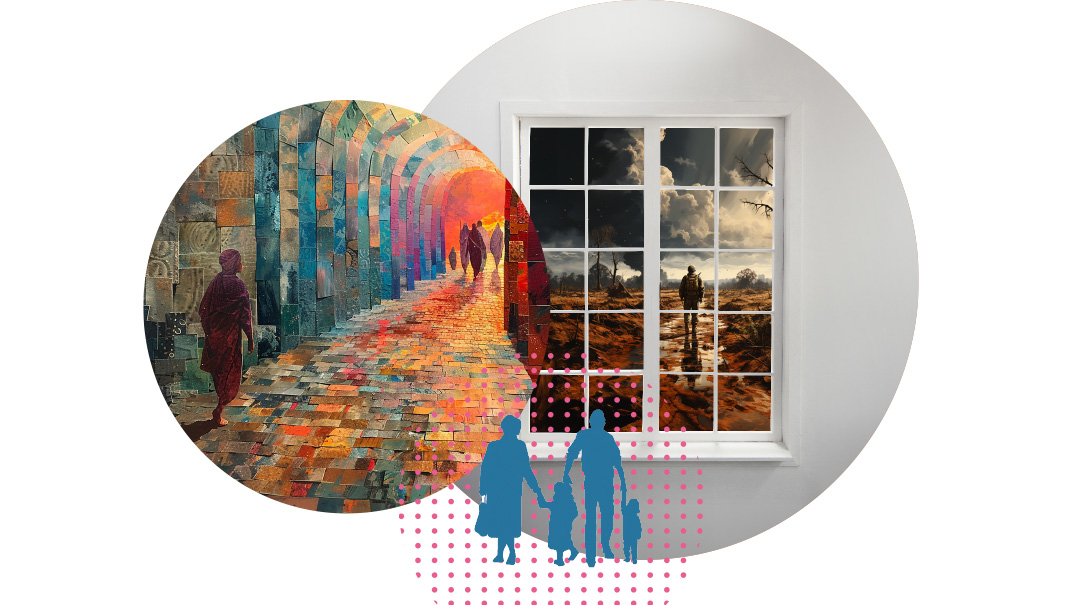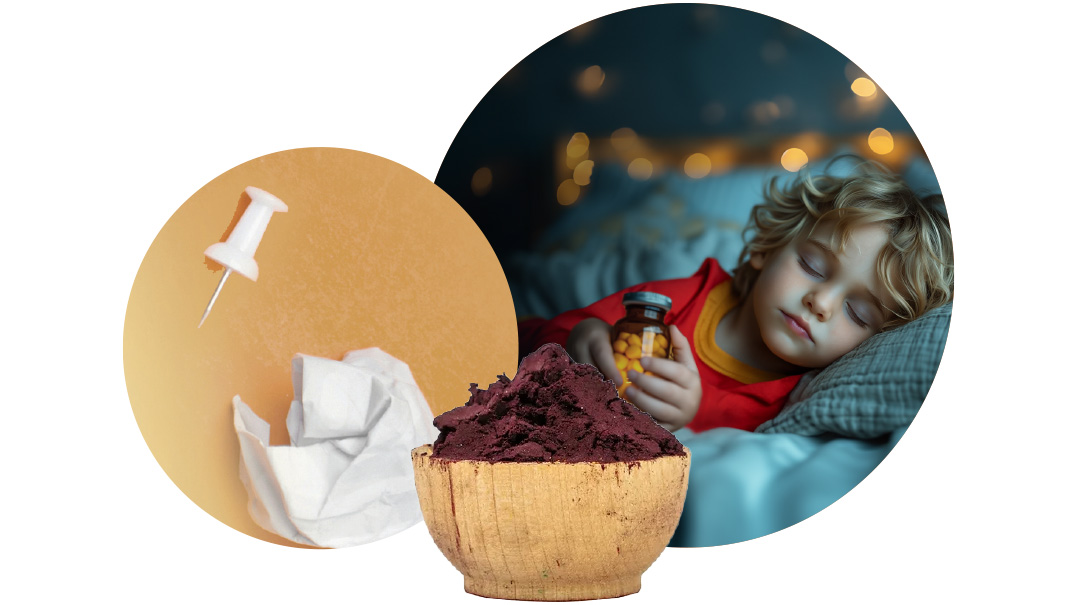Family First Inbox: Issue 755

"I’ve come to ask myself the very questions you so pointedly spelled out: Maybe I’m getting over-involved? Maybe I’m neglecting my children?”

Plenty of Inspiration [Inbox / Issue 754]
Dear Mother Trying Her Best,
I read your letter about your frustration with the Doctor Mom article, and didn’t understand where you were coming from. I also run a busy household, trying to balance work, kids, laundry, groceries, and everything else. I work in education and have no interest in going to medical school. Or back to school at all.
I also don’t want to be a glass blower, bee keeper, interior designer, business owner, food blogger, or any of the many other professions that Family First often profiles. When I read those articles, I don’t feel incompetent, I think, “interesting, good for her,” and turn the page. I’m perfectly content serving my family cholent and kugel on Shabbos without charcuterie boards and have no plans to buy plants or candles to decorate my living room. And that’s fine.
I also didn’t read that article and wish my husband were any more than he already is. He may not drive me to work every day (which would be silly — we have two cars), but he’s there for me when and how I need him. Her marriage has no bearing on mine.
You asked how this article left anyone feeling inspired. I’m sure many people were. I’m sure it inspired girls who want to go to medical school but don’t know if it’s possible to balance it with a frum family. It probably inspired many baalei teshuvah hoping that their new lifestyle won’t prevent them from following their dreams. Maybe it inspired women whose children are leaving home and they’re now considering a career change.
Honestly, perhaps it should inspire me — I work part-time and am not in school — maybe I can invest a little more into my bedtime routine or spend some time sitting on the floor with my kids, if someone who is so much busier than I can do so.
Good luck on your mothering journey!
A Mother Who’s Content with Her Best
Special Joy [Musings / Issue 754]
I read with deep sadness the Musings column by the mother mourning her adult daughter with special needs who will never fully grow up.
Yes, there is an overwhelming sadness that lingers. Yes, her daughter will never be independent. “She will never be what I’d dreamed, hoped she could be” — realizing this is devastating, it shatters what every parent wishes and anticipates for her child. But dwelling on this is a very devastating way to spend one’s life.
I was where the writer was for many years: “This was not the plan!” I couldn’t imagine what the One Above might have had in mind. It took a very difficult and long process to change my perspective.
But it’s possible to get past the disappointment and find comfort, and yes, even great happiness, in the knowledge that this child (irrespective of chronological age) is happy, finding joy in the things that we, with our “normal” outlook, wouldn’t even be aware of. Think of the mother in a recent Flashbacks who watched her son’s fascination at the water swirling down the drain. We find it amusing when a young child is fascinated by an ant carrying its minuscule burden.
As we mature, the wonderment of “watching the reflection of the light beams at a particular angle,” or the enjoyment from a “favorite purple Velcro watch,” is left far behind, as our goals become higher and, perhaps, far more elusive. Maybe, just maybe, Hashem gave us these special individuals, children forever, to teach us to find joy in the minutiae most of us ignore, in our pursuit of more complicated and challenging dreams.
If, as parents, we can take ourselves and our dreams out of the equation, if we can find joy in our special children’s joy, then perhaps that lingering sadness can be diminished, if not eradicated. Perhaps we can even take away the term “needs” and see that child as “special…. forever.
With only the warmest feelings, another mother of a special child,
Ahava Ehrenpreis
Marriage isn’t the Solution [Follow Me / Issue 753]
I’m writing in response to the ending of a recent installment of “Follow Me.” I purposely wanted to pen these thoughts now, before the story continues and results have already played out. In the closing scene, Leah tries to convince Deena to start thinking about remarrying, using “You’re torturing yourself and you’re torturing your kids” as a reason why she should be moving on.
As a divorcee for nearly 10 years now, I’d like to bring up an important point that often is not understood. I’m referring more to divorce than to widowhood, as a divorce can be thought-out as opposed to a spouse dying suddenly, over which one has no control.
Being divorced and being a single mother isn’t easy. It takes strength, fortitude, lots of good middos, inner calm and serenity, huge doses of emunah and bitachon, and a strong self-esteem to know that you’re capable of giving yourself and your children a healthy, stable life.
None of this comes naturally. Before a person makes a decision to get divorced, they need to work on all the above, join a 12-step program or support group, have a skilled and competent therapist and mentor, create a network of supportive friends and family, and above all, work on their connection with the One above, Who is the only One Who can really help them through the arduous journey ahead.
Similarly with all second marriages — which would include widows. Unhealthy coping mechanisms, undiscussed trauma, terrible communication skills, parenting skills, etc… Our main character, Deena, would be a prime specimen for many social workers to analyze and dissect how many things she needs to work on before she can actually move forward towards building a healthy new relationship. As Rabbi Twersky z”l used to famously say, “Marriage is not a hospital.” When we think that marriage is a goal in of itself to solve our problems and loneliness, without working on ourselves to be healthy and strong, we do ourselves a disservice by not utilizing the challenge Hashem sent our way to better ourselves. Moreover, we’re setting up this second relationship for total disaster, hence the frightening number of second divorces and the ensuing re-traumatization of the children involved.
Any successful marriage can only thrive with two healthy individuals. No one should think divorce or remarriage is a solution to their problems. Take the power back where it belongs — in you. And here’s the funny part: once you do all of that inner work, and emerge into a strong, capable, confident person… you just might not feel all that lonely after all. And that’s when you’ll know that you are ready to enter into a new relationship giving your partner your very best self.
Wishing serenity for all,
R.G.
Lakewood, NJ
We Have to Judge [Inbox / Issue 753]
Dear Letter Responder,
Thank you for taking the time to share your thoughts on how my letter may have been received. Your point of “do not judge” is a super valuable lesson. I had written about my friend, the seminary mechaneches, and how the more she gives to her student, the less patience she has for her own kid. You asked if I ever barked at my kids, and pointed out that my letter will now make every mechaneches doubt herself.
I read your letter and feel compelled to respond and share the truth behind my letter.
I’ll start again: With excitement I look forward to sitting on my couch and reading the real-to-life serials. I, too, am a dear mechaneches who lives and breathes for my seminary students; the story resonates so deeply with me. I created a fictitious character, my friend, Tammy #2, while the real Tammy is myself, TG.
I daven, and try hard to behave with calm and serenity towards my children and family. However, when I occasionally notice the “ironic trend” and bark at my kids in the park or in the privacy of my home, I stop and introspect, with my husband’s help, to see why I feel the way I do. I’ve come to ask myself the very questions you so pointedly spelled out: “Maybe I’m getting over-involved? Maybe I’m neglecting my children?”
Yes, it behooves every women/mechaneches/mother who is giving to the klal to stop and think: am I doing too much for others that my real priorities are not being met?
I’m 27-years-old. Am I handling challenges which I’m unequipped to deal with? Am I hurting in the context of helping?
As the mishnah in Pirkei Avos states: “Al tadin es chavercha ad shetagiya l’mekomo.” I should hope that if one is in a situation where she is able to give so deeply to the crying souls of Klal Yisrael, she also recognizes and knows her place, and that yes, she can judge herself and consider if what she’s doing is bringing “harm or good.”
Thank you, fellow mechanchos of Klal Yisrael, for your dedication to the children of our generation. May Hashem repay us all with nachas and brachah.
T.G.
Jerusalem
Shouting Isn’t Inevitable [Inbox / Issue 753]
The letter assuming that we all scream at our kids disturbed me slightly. I used to teach and found myself shouting at my kids. One Erev Shabbos I had an epiphany: How can I welcome the ShabbosQueen when my children are upset because I shouted at them?
From that day on, I stopped shouting on Erev Shabbos. Believe it or not, this behavior carried over to the weekdays as well, until I could be annoyed with a child but didn’t shout. Life was so much happier and calmer.
Maybe I am a waxwork but I have happy children at home.
A Relaxed Mother
Stop Him [Ring Me / Issue 753]
I’m an avid reader of Ring Me, enjoying Shani Leiman’s shidduch scenarios and her insights into the lives of many of the singles she works with.
A recent column described a horrifying scenario in which a close relative of the boy took the liberty of warning the family of a girl prior to the first date, insisting that he “knew the boy well,” and he was “not healthy and stable enough to get married,” among other insidious, blatantly untrue and subjective comments.
Fortunately, the shadchan was able to save the situation through the intervention of rabbis involved with the family. And after much emotional back and forth, they proceeded to date. Shani Leiman ends with, “I was left thinking how complicated life can be, and how important it is to speak carefully and act thoughtfully.”
I’d personally conclude this story in far stronger terms. Before anyone decides to “warn”’ a family in such a drastic way please first discuss this decision with a rav who is intimately aware of the nuances of this single’s life and history. One also needs to consult with a highly competent halachic authority fully versed in the laws of shmiras halashon.
The shadchan expressed the hope that the relative “wouldn’t try to pull this shtick again in the future.” I believe the correct course of action would be to proactively make sure that he doesn’t pull that shtick again by having the appropriate person inform him that his actions are highly destructive and not at all in accordance with halachah.
Debby Garfunkel
Toms River
What about Honesty? [Inbox / Issue 752]
I was shocked and disturbed by the letter in which a woman shared that she chose her daughter-in-law because she received the “right” information from one of the references — she was told that “honest and straight” is not the girl’s strong point — which pleased the mother, since their business includes some “gray” areas and they wouldn’t want a “goody-goody” for a daughter-in-law.
Are you not ashamed to print something like this? What message are you trying to send to the women reading your magazine? Is honesty no longer part of our Torah requirements? How does this represent a Torah perspective on life? It was painful to see this in the magazine.
Ethel Minder LMSW
Monsey, New York
Honey It Is [Musings / Issue 750]
Having been away, I was looking forward to spending part of Shabbat to catch up on Mishpacha magazines I had missed. I laughed out loud as I read “The Name Game.” In 1982 my first grandchild was beginning to talk. She called my husband Zadie, she called her other grandfather Zadie, and she called her other grandmother Bubbie — but no name for me.
One day she said, “I want what Honey has.” (Honey was the term of endearment my husband always used for me.) Almost 40 years later, I’m Honey to all my children’s spouses, all my grandchildren, all my grandchildren’s friends and their parents, and all my great-grandchildren.
When it’s the right name, you know it, and so does everyone else.
Honey
Strong Bonds [Camp Wives / Issue 749]
I was excited to read the article about camp wives, but a bit surprised at the perspective of your interviewees. My family spent many years in Camp Rayim as a “staff family,” and those summers remain in our collective memories as beautiful and special.
As a wife of a busy division head, was I sometimes bored? Sure. Did I miss my husband’s company (and help)? Definitely. But in exchange, I created priceless, eternal friendships.
My camp friends and I spent hours upon hours shmoozing, laughing, and raising our kids together. We truly needed to be there for each other. (Like the time one of us had a baby, and the rest just automatically stepped in, doing laundry, childcare and all the rest…) The freedom from almost all responsibility — and the absent husbands — created strong bonds not just between us women but between our daughters as well. Today, many years later, our grown daughters still stay connected and feel that same sense of belonging.
So for all those that were considering this crazy life, and were discouraged by the experience of some, know that this may be one of the most special gifts you can give yourself and family.
Layala Friedman
Reverberating Through the Decades [My Lightning Flash / Issue 742]
I, too, would like to chime in with a powerful NCSY Shabbaton memory. Please travel back with me 48 years!
My dear friend Symie had invited me to join her for this special Shabbos. The crowd was joined in song, singing with fervor and passion, the beautiful words recited Shabbos morning as we prepare to bring the Sefer Torah out of the Aron Kodesh: “Atah horaisa ladaas, ki Hashem Hu haElokim.” The song ends on a high with the refrain “Ein od milvado. Hashem Hu haElokim.”
The words were sung again and again, higher and higher, louder and louder. So loud, that I can still hear those powerful words reverberating in my ears today!
These Shabbatons had an impact not just on those coming from secular backgrounds, but also on those who were privileged to grow up in Torah-observant homes. What a chavayah!
Miriam Liebermann
(Originally featured in Family First, Issue 755)
Oops! We could not locate your form.


